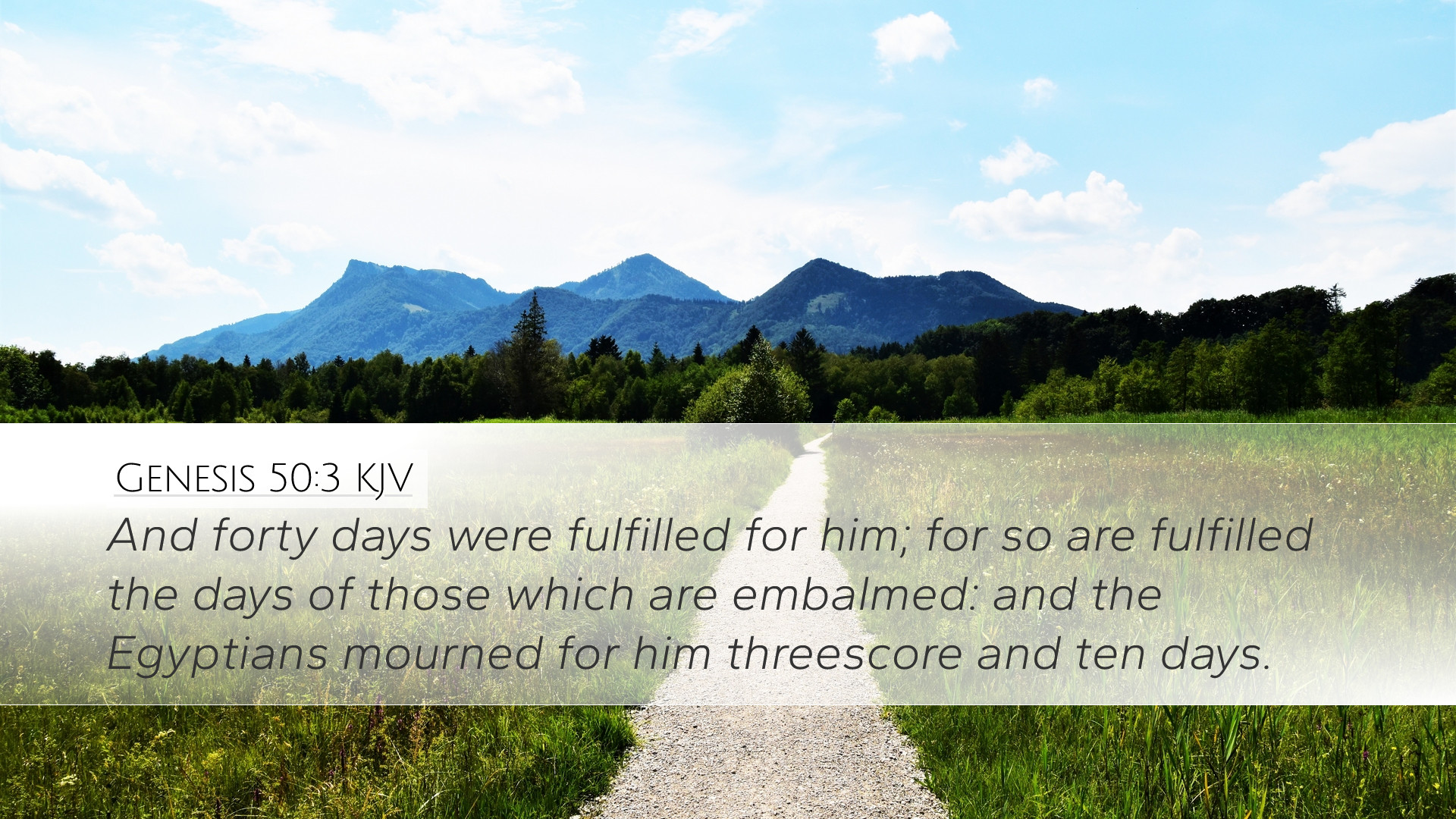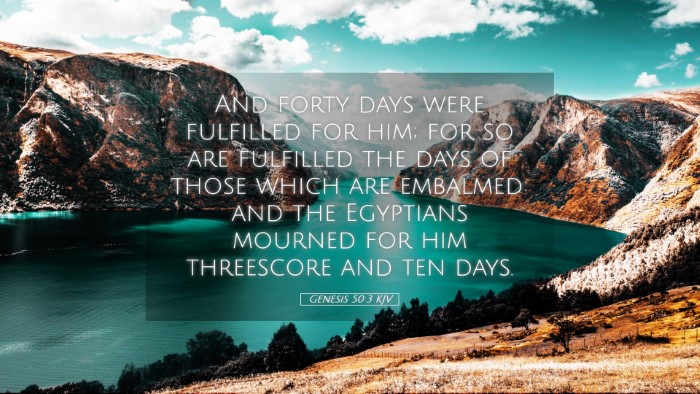Commentary on Genesis 50:3
Verse: "And forty days were fulfilled for him; for so are fulfilled the days of those which are embalmed: and the Egyptians mourned for him threescore and ten days."
Introduction
The conclusion of the Book of Genesis is marked by the death of Jacob, an important figure in the narrative, but significant attention is also given to the death of Joseph's father. Genesis 50:3 not only describes the mourning period for Jacob but provides insight into Egyptian customs surrounding death, as well as the profound emotional and theological significance of Joseph's relationship with his father and his heritage.
Embalming and Mourning Rituals
Public Domain Insights:
-
Matthew Henry:
Henry notes that the Egyptians had a detailed process of embalming the dead, which served both practical purposes in preserving the body and ceremonial importance in demonstrating respect for a life once lived. He emphasizes the length of mourning and how it reflects both Jacob's status and the specific customs of the Egyptians.
-
Albert Barnes:
Barnes explains the mourning practices of the Egyptians, particularly the forty-day embalming process which was standard for significant figures. He draws attention to how this period was filled with solemnity and rituals that highlighted the respect held for Jacob, not only by his family but also by the Egyptians who recognized his importance.
-
Adam Clarke:
Clarke focuses on the cultural context, providing the insight that the practice of mourning for seventy days was considered a great honor. He remarks that Jacob's life had profound implications for the Israelites, as well as how this period of mourning allowed the family to reflect on their heritage and their future identity as a people.
Theological Significance
Theological Themes:
-
The Continuity of God's Covenant:
This moment in the narrative solidifies the ongoing relationship between God, Jacob, and his descendants. The mourning period serves as a transition from one patriarch to another, paving the way for the continuation of the covenant. As seen in the reflections of Henry and Clarke, understanding this continuity provides theological depth to the passage.
-
Joseph's Role as a Leader:
Joseph's active involvement in the mourning of his father highlights his character and maturity. His ability to receive the customs of Egypt while maintaining his identity as an Israelite speaks to the dual influences at play in the lives of the Hebrews in Egypt. This duality is an essential theme throughout the Genesis narrative.
-
The Weight of Loss:
The mourning observed for Jacob signifies not just the loss of a father figure but a generational transition within the faith of Israel. Joseph’s grief and the communal mourning portrayed underscore the deep relationships foundational to the Jewish faith.
Applications for Today
This passage and its commentary provide meaningful insights for pastoral care and theological training:
-
Understanding Grief:
The depth of mourning for Jacob indicates that grief is a significant aspect of human experience. Pastors and counselors are called to facilitate spaces for people to mourn as necessary, just as Joseph did.
-
Cultural Sensitivity:
The recognition of Egyptian customs invites modern readers to engage with diverse cultural practices regarding death and mourning, urging Christians to respect and learn from different expressions of grief.
-
Legacy and Memory:
The narrative encourages believers to reflect on legacy—both in terms of familial heritage and spiritual heritage. Jacob's death prompts questions about what we leave behind and how we are remembered in the eyes of God and our community.
Conclusion
Genesis 50:3 encapsulates a moment of profound significance not only within the narrative but also within the theological framework of the Bible. By examining the historical and cultural context of mourning practices as well as the emotional weight of loss, we can glean lessons about identity, continuity, and the practice of faith. As we reflect on this passage, may we find encouragement in the shared humanity, grief, and hope that it represents.


